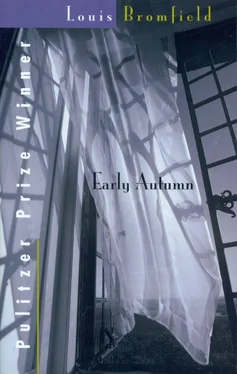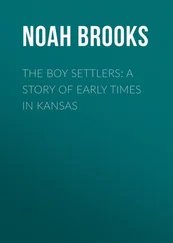None of the letters bore any dates, so she fell to reading them in the order in which they had been found, beginning with the one which read:
Carissima,
I waited last night in the cottage until eleven and when you didn’t come I knew he had not gone to Salem, after all, and was still there at Pentlands with you. …
She read on:
It’s the thought of his being there beside you, even taking possession of you sometimes, that I can’t bear. I see him sitting there in the drawing room, looking at you—eating you with his eyes and pretending all the while that he is above the lusts of the flesh. The flesh! The flesh! You and I, dearest, know the glories of the flesh. Sometimes I think I’m a coward not to kill him at once.
For God’s sake, get rid of him somehow tonight. I can’t pass another evening alone in the dark gloomy cottage waiting in vain. It is more than I can bear to sit there knowing that every minute, every second, may bring the sound of your step. Be merciful to me. Get rid of him somehow.
I have not touched a drop of anything since I last saw you. Are you satisfied with that?
I am sending this in a book by black Hannah. She will wait for an answer.
Slowly, as she read on and on through the mazes of the impetuous, passionate writing, the voices from the terrace below, the one raised now and a little angry, the other still metallic, hard and indifferent, grew more and more distant until presently she did not hear them at all and in the place of the sound her senses received another impression—that of a curious physical glow, stealing slowly through her whole body. It was as if there lay in that faded brown writing a smoldering fire that had never wholly died out and would never be extinguished until the letters themselves had been burned into ashes.
Word by word, line by line, page by page, the whole tragic, passionate legend came to recreate itself, until near the end she was able to see the three principal actors in it with the reality of life, as if they had never died at all but had gone on living in this old house, perhaps in this very room where she sat … the very room which once must have belonged to Savina Pentland.
She saw the husband, that Jared Pentland of whom no portrait existed because he would never spend money on such a luxury, as he must have been in life—a sly man, shrewd and pious and avaricious save when the strange dark passion for his wife made of him an unbalanced creature. And Savina Pentland herself was there, as she looked out of the Ingres portrait—dark, voluptuous, reckless, with her bad enticing eyes—a woman who might easily be the ruin of a man like Jared Pentland. And somehow she was able to get a clear and vivid picture of the writer of those smoldering letters—a handsome scamp of a lover, dark like his cousin Savina, and given to drinking and gambling. But most of all she was aware of that direct, unashamed and burning passion that never had its roots in this stony New England soil beyond the windows of Pentlands. A man who frankly glorified the flesh! A waster! A seducer! And yet a man capable of this magnificent fire which leaped up from the yellow pages and warmed her through and through. It occurred to her then for the first time that there was something heroic and noble and beautiful in a passion so intense. For a moment she was even seized by the feeling that reading these letters was a kind of desecration.
They revealed, too, how Jared Pentland had looked upon his beautiful wife as a fine piece of property, an investment which gave him a sensual satisfaction and also glorified his house and dinner table. (What Sabine called the “lower middle class sense of property.”) He must have loved her and hated her at once, in the way Higgins loved and hated the handsome red mare. He must have been proud of her and yet hated her because she possessed so completely the power of making a fool of him. The whole story moved against a background of family … the Pentland family. There were constant references to cousins and uncles and aunts and their suspicions and interference.
“It must have begun,” thought Olivia, “even in those days.”
Out of the letters she learned that the passion had begun in Rome when Savina Pentland was sitting for her portrait by Ingres. Toby Cane had been there with her and afterwards she had gone with him to his lodgings: and when they had returned to the house at Durham (almost new then and the biggest country seat in all New England) they had met in the cottage—Brook Cottage, which still stood there within sight of Olivia’s window—Brook Cottage, which after the drowning had been bought by Sabine’s grandfather and then fallen into ruins and been restored again by the too-bright, vulgar, resplendent touch of O’Hara. It was an immensely complicated and intricate story which went back, back into the past and seemed to touch them all here in Durham.
“The roots of life at Pentlands,” thought Olivia, “go down, down into the past. There are no new branches, no young, vigorous shoots.”
She came at length to the last of the letters, which had buried in its midst the terrible revealing lines—
If you knew what delight it gives me to have you write that the child is ours beyond any doubt, that there cannot be the slightest doubt of it! The baby belongs to us … to us alone! It has nothing to do with him. I could not bear the idea of his thinking that the child is his if it was not that it makes your position secure. The thought tortures me but I am able to bear it because it leaves you safe and above suspicion.
Slowly, thoughtfully, as if unable to believe her eyes, she reread the lines through again, and then placed her hands against her head with a gesture of feeling suddenly weak and out of her mind.
She tried to think clearly. “Savina Pentland never had but one child, so far as I know … never but one. And that must have been Toby Cane’s child.”
There could be no doubt. It was all there, in writing. The child was the child of Toby Cane and a woman who was born Savina Dalgedo. He was not a Pentland and none of his descendants had been Pentlands … not one.
They were not Pentlands at all save as the descendants of Savina and her lover had married among the Brahmins where Pentland blood was in every family. They were not Pentlands by blood and yet they were Pentlands beyond any question, in conduct, in point of view, in tradition. It occurred to Olivia for the first time how immense and terrible a thing was that environment, that air which held them all enchanted … all the cloud of prejudices and traditions and prides and small anxieties. It was a world so set, so powerful, so iron-bound that it had made Pentlands of people like Anson and Aunt Cassie, even like her father-in-law. It made Pentlands of people who were not Pentlands at all. She saw it now as an overwhelming, terrifying power that was a part of the old house. It stood rooted in the very soil of all the landscape that spread itself beyond her windows.
And in the midst of this realization she had a swift impulse to laugh, hysterically, for the picture of Anson had come to her suddenly … Anson pouring his whole soul into that immense glorification to be known as “The Pentland Family and the Massachusetts Bay Colony.”
Slowly, as the first shock melted away a little, she began to believe that the yellowed bits of paper were a sort of infernal machine, an instrument with the power of shattering a whole world. What was she to do with this thing—this curious symbol of a power that always won every struggle in one way or another, directly as in the case of Savina and her lover, or by taking its vengeance upon body or soul as it had done in the case of Aunt Cassie’s poor, prying, scheming mind? And there was, too, the dark story of Horace Pentland, and the madness of the old woman in the north wing, and even those sudden terrible bouts of drinking which made so fine a man as John Pentland into something very near to a beast.
Читать дальше












